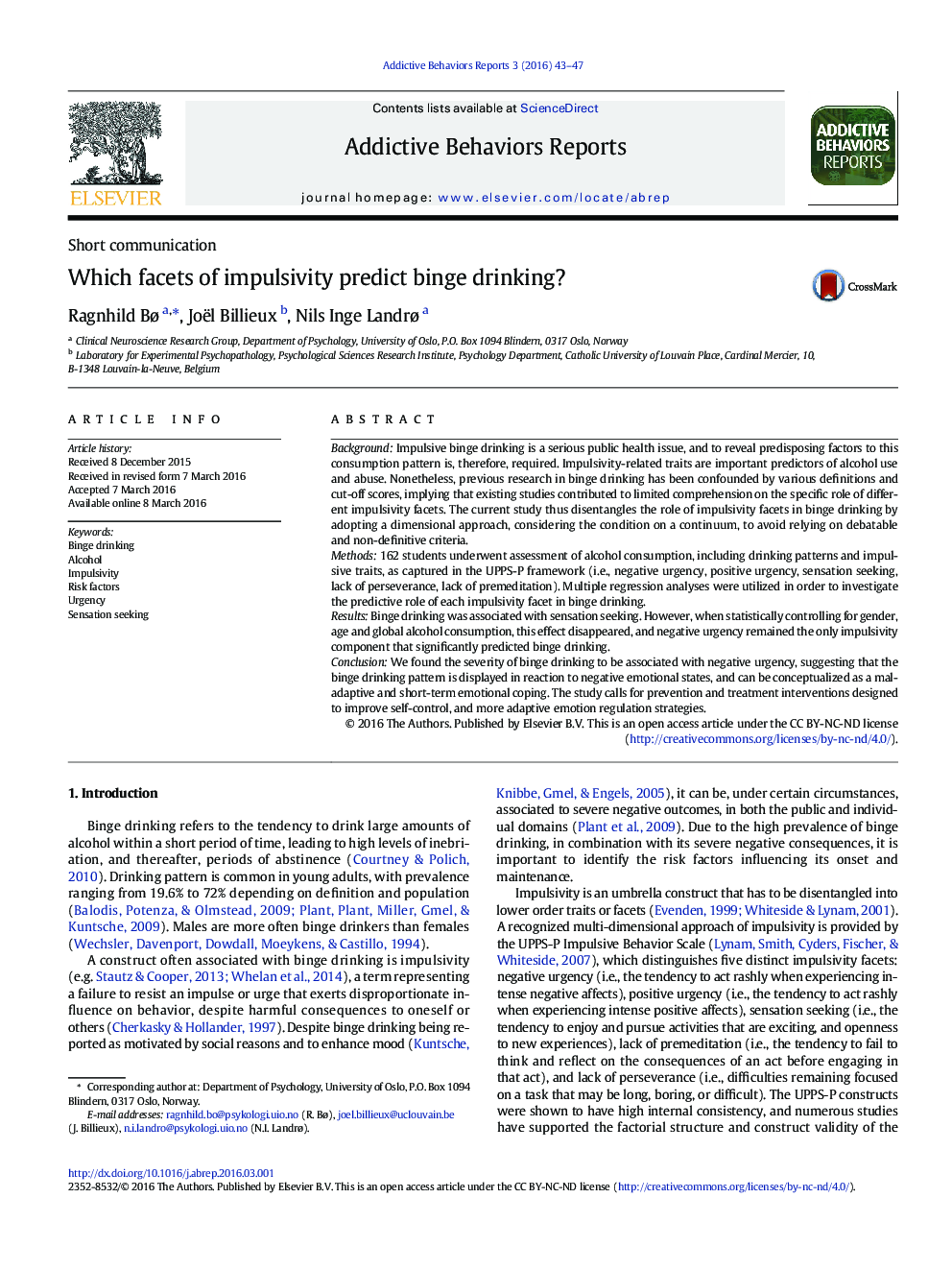| کد مقاله | کد نشریه | سال انتشار | مقاله انگلیسی | نسخه تمام متن |
|---|---|---|---|---|
| 900734 | 1472540 | 2016 | 5 صفحه PDF | دانلود رایگان |
• Binge drinking was assessed on a continuum to identify risk factors.
• Severity of binge drinking was predicted by negative urgency.
• The emotion regulation hypothesis of binge drinking was supported.
• Teaching adaptive emotion regulation strategies could prevent binge drinking.
BackgroundImpulsive binge drinking is a serious public health issue, and to reveal predisposing factors to this consumption pattern is, therefore, required. Impulsivity-related traits are important predictors of alcohol use and abuse. Nonetheless, previous research in binge drinking has been confounded by various definitions and cut-off scores, implying that existing studies contributed to limited comprehension on the specific role of different impulsivity facets. The current study thus disentangles the role of impulsivity facets in binge drinking by adopting a dimensional approach, considering the condition on a continuum, to avoid relying on debatable and non-definitive criteria.Methods162 students underwent assessment of alcohol consumption, including drinking patterns and impulsive traits, as captured in the UPPS-P framework (i.e., negative urgency, positive urgency, sensation seeking, lack of perseverance, lack of premeditation). Multiple regression analyses were utilized in order to investigate the predictive role of each impulsivity facet in binge drinking.ResultsBinge drinking was associated with sensation seeking. However, when statistically controlling for gender, age and global alcohol consumption, this effect disappeared, and negative urgency remained the only impulsivity component that significantly predicted binge drinking.ConclusionWe found the severity of binge drinking to be associated with negative urgency, suggesting that the binge drinking pattern is displayed in reaction to negative emotional states, and can be conceptualized as a maladaptive and short-term emotional coping. The study calls for prevention and treatment interventions designed to improve self-control, and more adaptive emotion regulation strategies.
Journal: Addictive Behaviors Reports - Volume 3, June 2016, Pages 43–47
